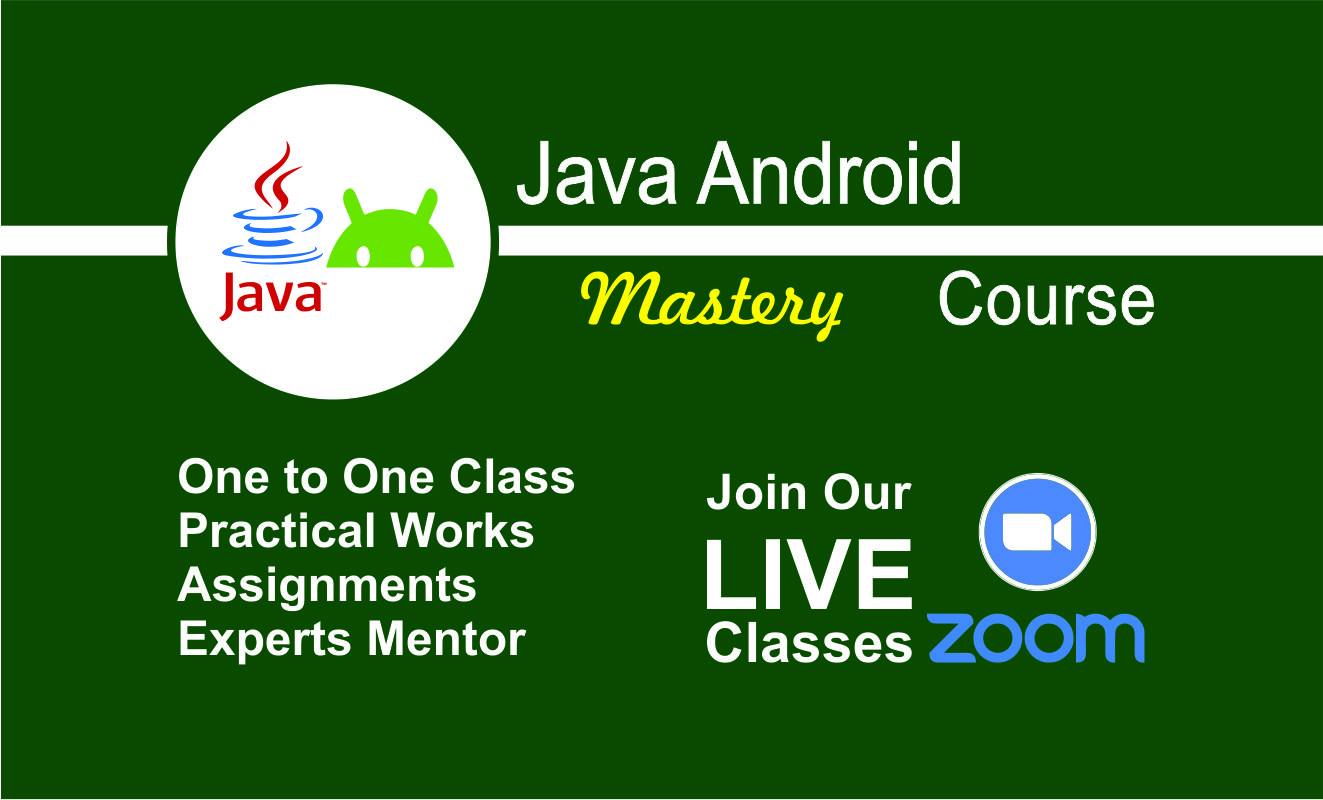This course is designed to provide a comprehensive introduction to Android app development using the Java programming language. Whether you're a beginner looking to start your journey in mobile app development or an experienced developer seeking to expand your skills, this course will equip you with the knowledge and hands-on experience needed to create Android applications.
Prerequisites:
- Basic understanding of Java programming.
- Familiarity with programming concepts is helpful but not required.
Course Duration: 12-16 weeks (adjustable based on the pace of the class)
Course Outline:
Module 1: Introduction to Android Development
- What is Android development?
- Setting up Android Studio
- Anatomy of an Android app
- Your first "Hello World" app
Module 2: User Interface (UI) Design
- Layouts and views in Android
- Creating interactive UI elements
- Styling and theming Android apps
- Design principles for mobile UI
Module 3: Java Essentials for Android
- Java programming basics
- Data types and variables
- Control flow (if statements, loops)
- Functions and methods
Module 4: Building Activities and Intents
- Activities in Android
- Creating multiple activities
- Navigating between activities
- Passing data with Intents
Module 5: User Interaction and Event Handling
- Handling user input (buttons, text input)
- Responding to touch and gestures
- Creating custom UI components
- Implementing event listeners
Module 6: Android Storage and Data Persistence
- Saving data with SharedPreferences
- Working with SQLite databases
- File storage and external storage
- Content providers and data sharing
Module 7: Working with Lists and Adapters
- Creating dynamic lists with RecyclerView
- Customizing list items and adapters
- Handling item clicks and selection
- Implementing search functionality
Module 8: Networking and Web Services
- Making HTTP requests with HttpURLConnection
- Consuming RESTful APIs
- Parsing JSON and XML data
- Handling network connectivity changes
Module 9: Multimedia and Camera Integration
- Capturing and displaying images
- Playing audio and video
- Using the camera and accessing photos
- Multimedia best practices
Module 10: Location-Based Services
- Working with location data
- Implementing maps and geolocation
- Geofencing and location tracking
- Location-based app development
Module 11: User Authentication and Security
- User authentication methods
- Implementing secure login and registration
- Data encryption and security best practices
- OAuth and third-party authentication
Module 12: Testing, Debugging, and Deployment
- Unit testing and instrumentation testing
- Debugging Android apps
- Preparing apps for deployment
- Publishing apps to the Google Play Store
Final Project:
- Students will develop a complete Android app of their choice, applying the skills learned throughout the course. The project will be presented to the class.
Assessments:
- Weekly assignments and quizzes
- Midterm project (developing a basic Android app)
- Final project (creating a comprehensive Android application)
Resources:
- Android developer documentation
- Online tutorials and articles
- Recommended readings and references
This course outline can be adjusted based on the level of the students and the pace of learning. Practical coding exercises and real-world projects should be an integral part of the course to ensure students gain hands-on experience in Android app development with Java.

